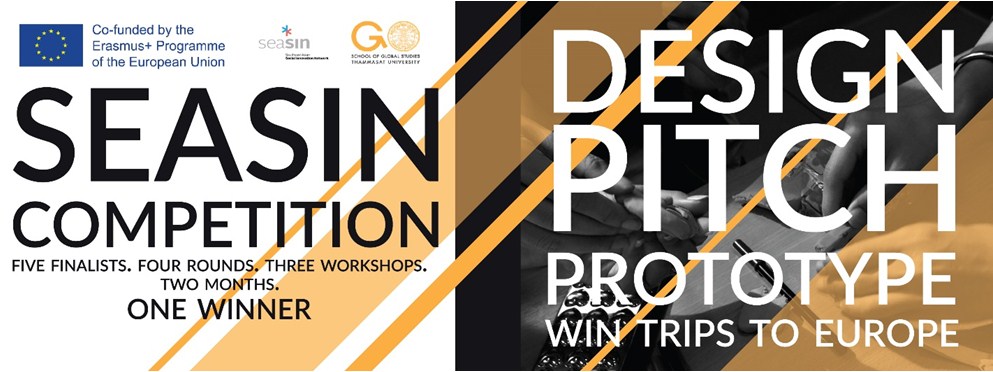
by myothein | Mar 5, 2019 | News, TU SISU
This competition was designed for SGS students to showcase their problem-solving abilities on a local scale.
The winning team would then attend three different university workshops in three different European countries during the month of May 2019.
As such, the winning team will attend social innovation workshops held in Scotland, Spain, and Portugal; and will come back to the school – re-evaluate their final pitch and present it at the final event being held in Thailand later in 2019.
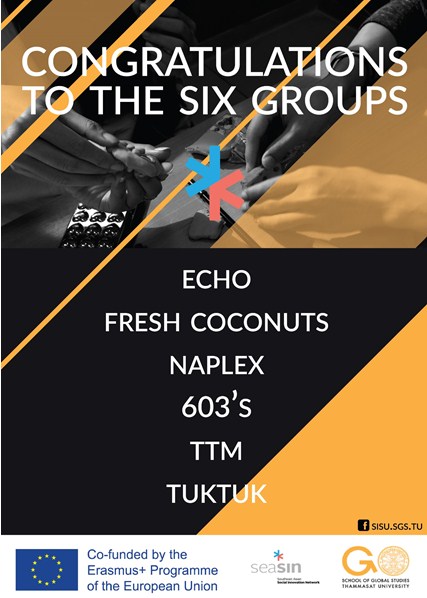
The teams were asked to address a series of questions, some of which are listed below:
What is your social innovation project?
a. The scope of the project
b. The nature of the problem being addressed
c. The reason for your work
Why?
a. What is your reason for being interested in this topic?
b. What is the root cause of this problem?
c. What makes it difficult to solve?
How?
a. What is your role in solving this problem?
b. What is your piece of the puzzle?
c. Are you trying to solve the entire problem? Or, which part of the problem is your work trying to solve?
There were three workshops, the first one focused on the Business Model Canvas and how to adapt it for social enterprises.
On February 09, 2019, the team members and other participants brainstormed the BMCs for their social innovation project ideas.
Dr Serdar went through the various components of a business model canvas highlighting the differences between a regular one and a social enterprise model.
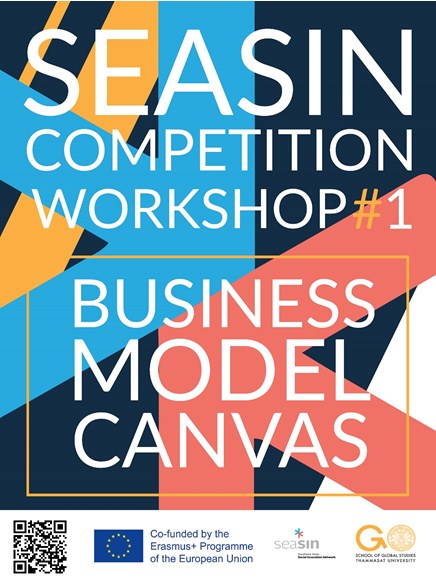
On February 23, 2019: Two workshops were conducted simultaneously, one focused on Service Design and the other on Components of Brand Design.
Aj. Namor facilitated the Service Design workshop, while P’ Lulu facilitated the workshop on Components of Brand Design.
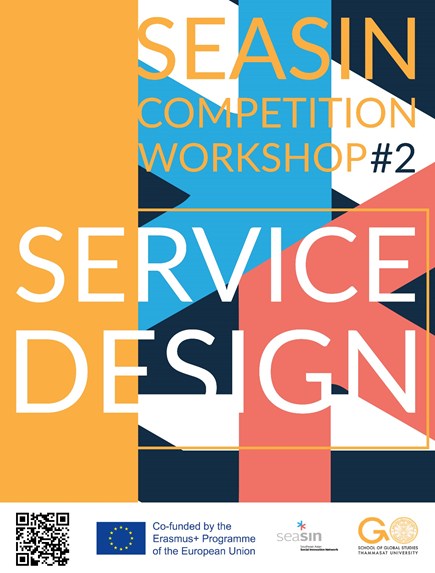
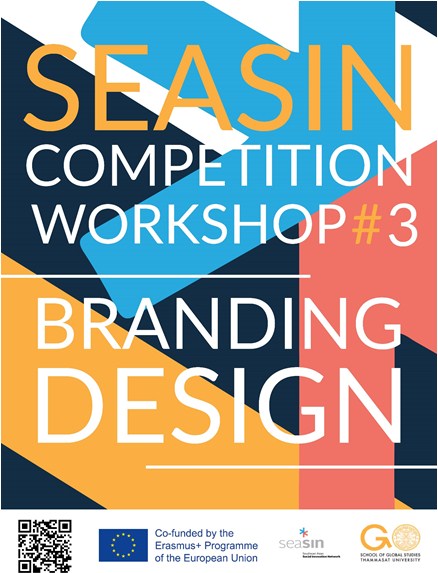
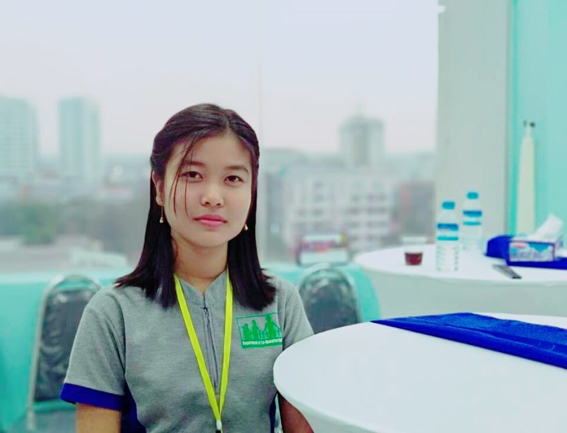
by So Jung Rim | Aug 23, 2018 | News, TU SISU
As the future of communities and the country lies in our hands, students can play a role in helping solve these challenges.
What’s your name? Tell us about yourself.
I am Shwe Yee Mya. Now, I am a fourth year student at Cooperative University, Thanlyin. My specialized major is Social Enterprise Management. I am passionate about thinking and solving social problems and I would like to provide facilities to social excluded vulnerable and marginalized groups. So, I decided that I must become a professional person in solving the social problems of the community. It is very difficult to become one, but I never give up. If I have a chance, I want to learn further study about Social Innovation. I will serve in reducing poverty alleviation for my country’s benefits. Now, I am a member and user of TCU SISU as well as participating in Waste Recycling project.
What do you think the most important social challenges are at the moment?
I think there are many social challenges that we are facing in our country. As my opinion, Environmental pollution is the first thing to be solved because this may alter the ecosystem and cause hazards to organisms. In environmental pollution, there are many facts which may cause pollution. But, I think people use plastic every day. Plastic is a dangerous thing for organisms because it is a persistent pollutant. Moreover, it may cause many diseases and may make the environment dirty. The social issues for orphans and vulnerable children who may be the future pillars of our country are the second thing to be solved.
What are you doing to address this challenge or what do you hope to do?
Now, I am participating in the Waste Recycling small project of TCU SISU to address these challenges. We collect the recyclable things in recycle bins and sell them. After we get money, we donate it to philanthropic associations and some becomes loans for low-income people. Our main objectives are to reduce the waste problem in our community and provide knowledge to people that plastic can be used as a recyclable product. Later, I would like to provide and support proper vocational training for vulnerable people. I hope that people who participate in this project may have a teamwork spirit, social entrepreneurial intentions, environmental awareness, knowledge and understanding in students to prevent future damage.
How do you think students or young people can play a role in helping solve these challenges?
I think students or young people are the backbone of society and hence they determine the future of society. As the future of communities and the country lies in our hands, students can play a role in helping solve these challenges. Young people have a role in renewing and refreshing the current status of our society including leadership, innovation, entrepreneurship skills, etc. For example, we can find a lot of young university students interested in philanthropy who works as a part-time volunteer looking after orphans and older people. In social organizations such as NGOs, INGOs, and social enterprises, they participate as apprentices.
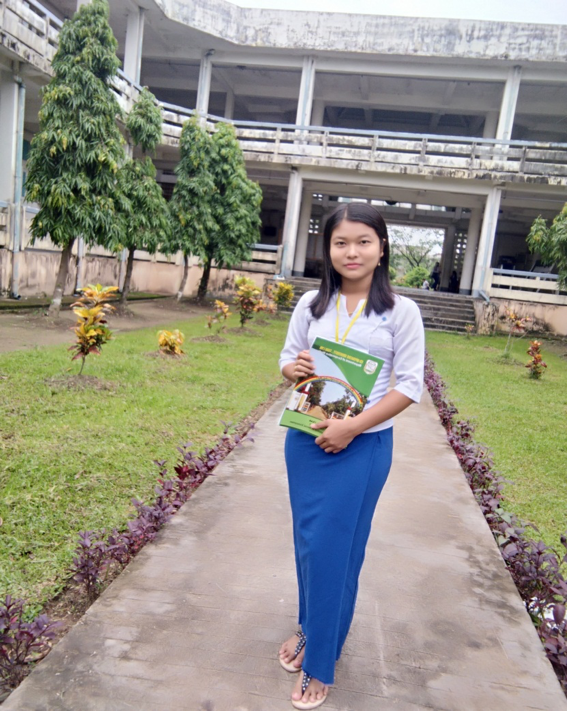
What did you learn at the SEASIN studio?
At the SEASIN studio, I got a lot of knowledge, such as how to set the objective, how to plan a project, how to address barriers and how to implement the project and so on. I learned the functional analysis to solve the most important social problems in the community. At the studio, we considered many basic facts of the problem and we classified the most possible facts to solve it. Finally, we were able to accommodate the problem solving methods.
Has the SEASIN studio introduced you to new ways of thinking or working? Has it changed your perspective or your behaviour?
This studio makes me understand the importance of teamwork, and how to communicate with other people to achieve our goals. Moreover, it also gave me more self confidence when I speak to my teacher, my friends and other people. I am proud of attending this workshop which had a tremendous effect on my personal skills such as presentation skills, communication skills and creative thinking ideas. After attending this workshop, I have not only been generating ideas but also getting new ways to solve the social problems systematically.
What does ‘social innovation’ mean to you?
For me, ‘social innovation’ means ideas that bring value to society. In other words, social innovation is the application of new ideas to solve the social problems.
Do you think it is important that university play a role in the community that is more than as academia? How?
Yes, I think it is important that university play a role in the community. The universities mostly provide higher education degree. However, there are a lot of social needs and problems in the community. Therefore, universities should link together with the stakeholders to address for these challenges. So, the universities should provide not only academia for students but also provide vocational training, career and skill development programs for the community.
What can universities do to help students become better problem solvers of future challenges?
In my opinion, universities can help students by providing a higher degree of social innovation, linking the external experts in order to get knowledge and advice, listening to their voice about how they want to implement their dreams, and they can also allow students to participate in small projects of the university which can benefit society.
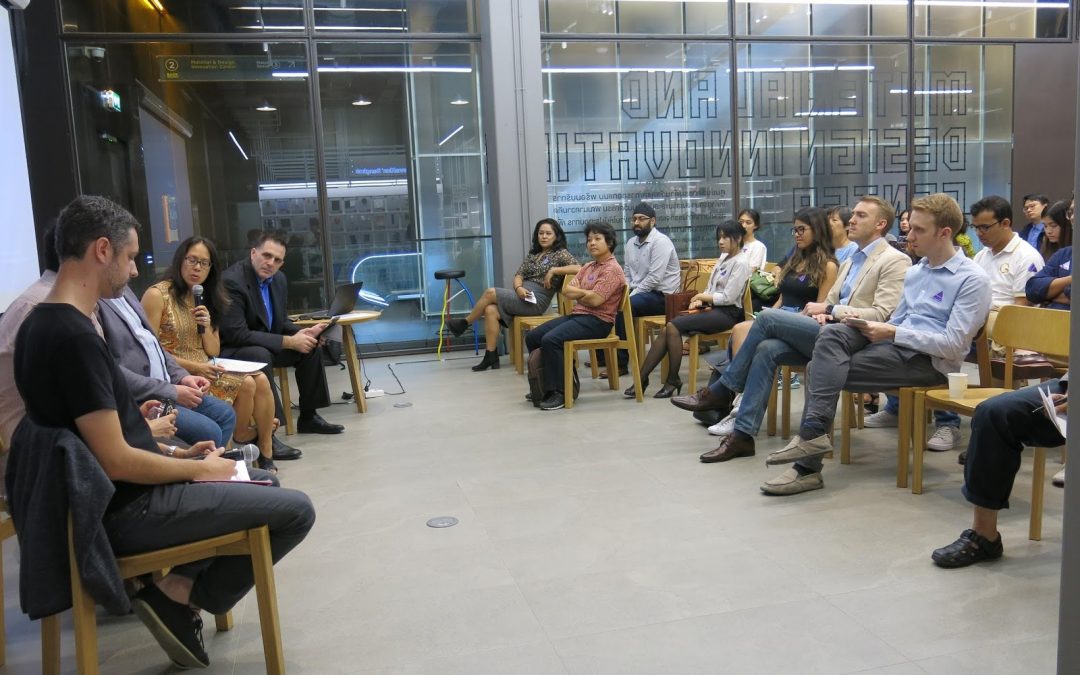
by So Jung Rim | Mar 15, 2018 | News, TU SISU
In November 2017, the Thammasat SEASIN team organised an event looking at the Future of Social Innovation Ecosystems in Thailand and Beyond. Panelists included representatives from the head of UNDP’s social innovation team, the head of UNICEF’s social innovation team, the founder of ChangeFusion, a Bangkok based social impact incubator, and the CEO of Tandemic, a Malaysia based social innovation and design thinking firm. This event was a part of The School of Global Studie’s ‘What The Future?!’ an event that aims to strengthen the social impact community in Bangkok.
The speaker series event brings together experts in the realm of social innovation to discuss global social challenges relevant to the region. The first half of the event is an interactive panel discussion where questions for the panel are crowd sourced from the audience. For the second half of the event the audience is broken up into smaller groups that are joined by a panelists to have more intimate discussions which allows everyone the chance to participate, share their knowledge, and discuss big topics at a micro level.
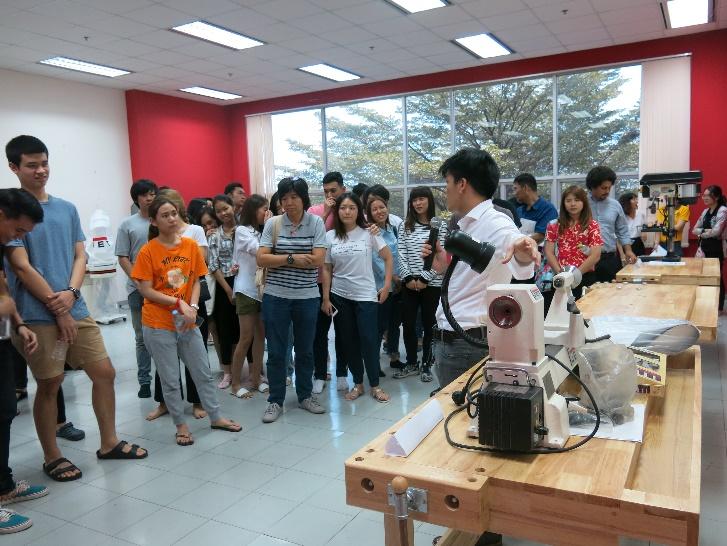
by So Jung Rim | Mar 13, 2018 | News, TU SISU
On March 05, 2018, the School of Global Studies at Thammasat University organised a SISU Workshop in its Makerspace. The workshop was led by guest Digital Fabrication expert, Mr Kitrawee Rudeejaruswan from FabCafe, Bangkok.
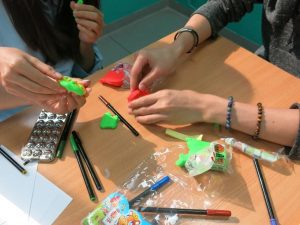
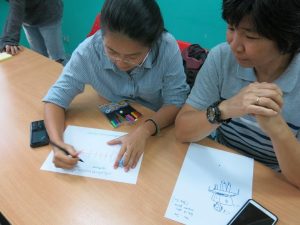
The workshop activity was allocated into two segments and the theme was, ‘Designing with Intent’. Participants were grouped into clusters of three, and for the first half of the workshop were asked to create a character with distinct personality traits and needs. In the second half of the workshop, participants were given the character design from other teams, and were asked to design a chair based on the information. The purpose of this workshop was to guide participants to develop a requirement-based approach to designing.
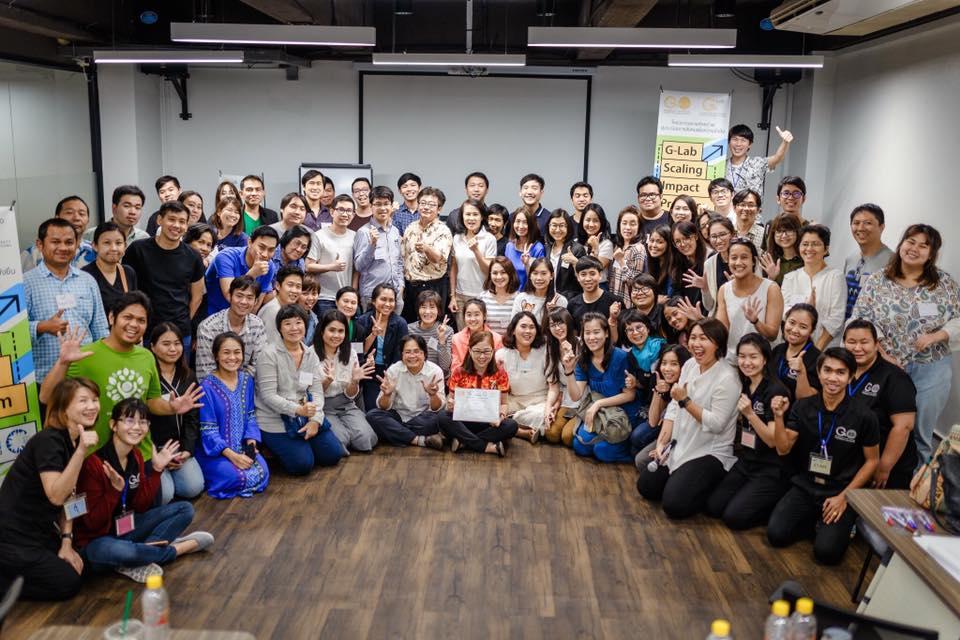
by So Jung Rim | Mar 12, 2018 | News, TU SISU
The program aims to increase the potential of 50 Thai social enterprises in terms of developing their products and services to be able to solve economic, social, and environmental problems and achieve sustainable development goals. 50 social enterprises are offered intensive 3-day workshops including team building/culture, design thinking, business model canvas, SIA/Theory of Change, and product design. After the intensive workshops are completed, the top five social enterprises with most potential will be selected and supported in order to enable them to develop their products to reach full market capacity. The support is in the form of grants, intensive workshops – project management, business strategy, marketing and PR, negotiation and decision making – along with personal coaches. The value of which is up to THB 1,500,000 in total.
The G-Lab Scaling Impact Program has already started to scale up 50 social enterprises starting in March of 2018, and will be completed in August 2018. Moreover, a social enterprise market place will be set up for 50 social enterprises to present their products at the final stage of the program in August. Investors from renowned companies and organizations including press agencies will be invited to participate in the event so that the social enterprisers have a chance to pitch their social enterprise ideas to investors.
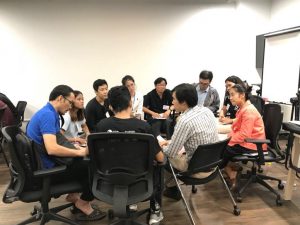
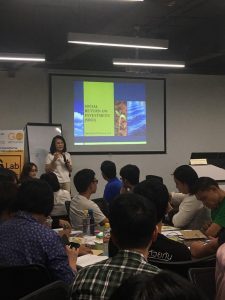
Social Enterprise Team categories include:
- Food
- Health
- Environment
- Education
- Agriculture





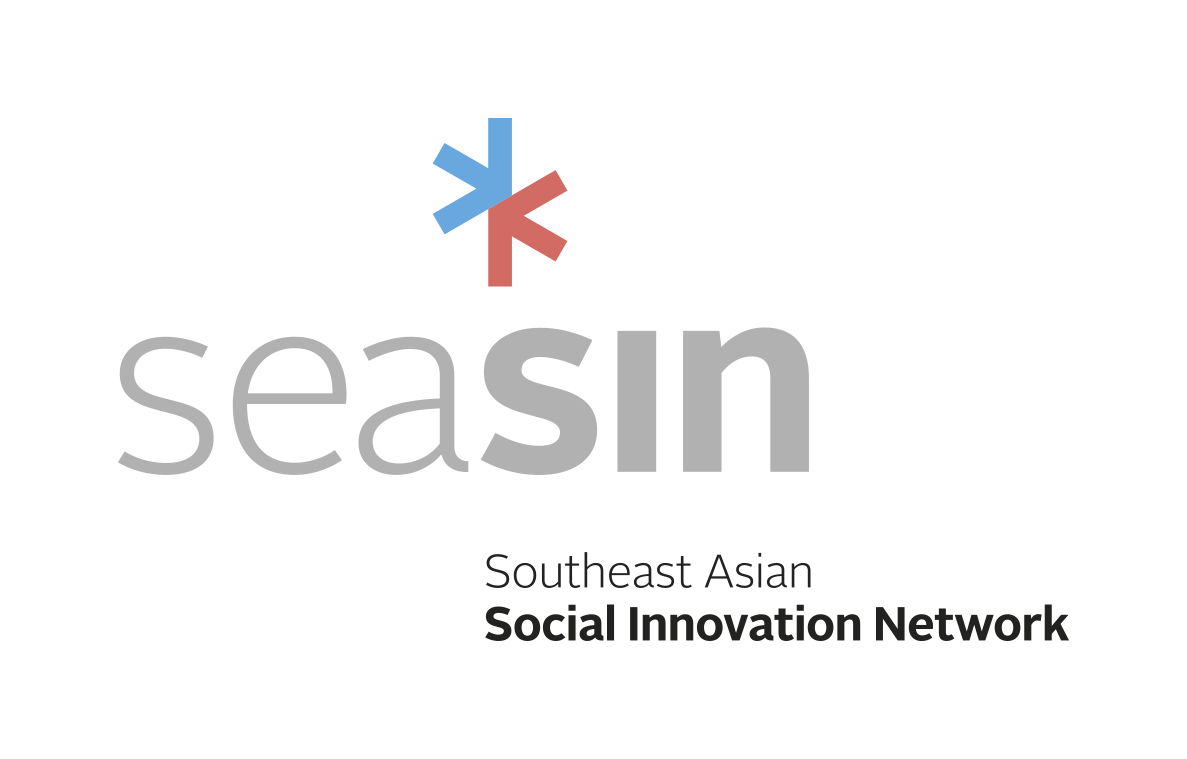
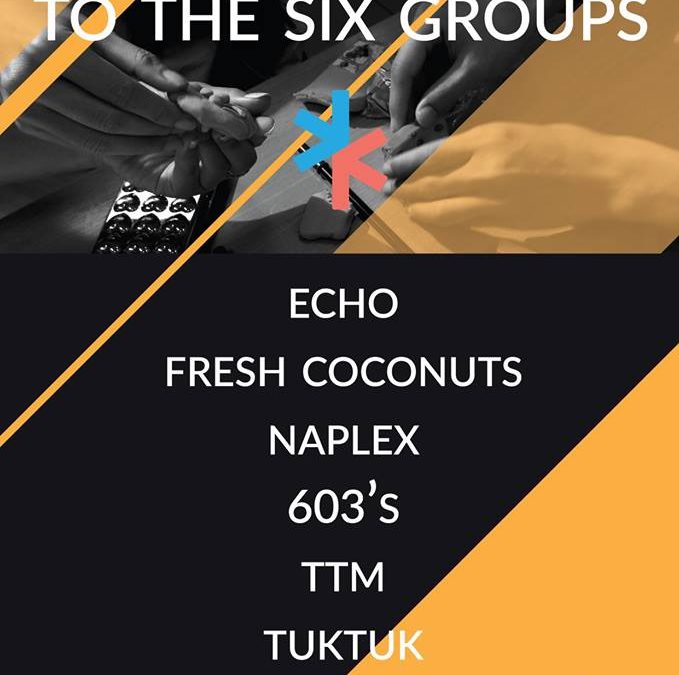









Recent Comments